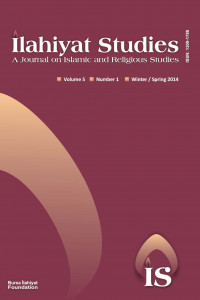Muslim Exegesis of the Bible in Medieval Cairo : Najm al-Dīn al-Ṭūfī’s (d. 716/1316) Commentary on the Christian Scriptures, (A Critical Edition and Annotated Translation with an Introduction) by Lejla Demiri
Abstract
First paragraph: Al-Ṭūfī, a Ḥanbalī jurist, theologian, and exegete, was born around 670/1271-2 in the area of Baghdād and was initially educated there. He moved to Damascus in 704/1304-5 to study with Ibn Taymiyya (d. 728/1328), then to Cairo in 705/1306 to work as a teacher. He was expelled from there in 711/1311 and subsequently lived elsewhere in Egypt, went on the ḥajj in 714/1315, and died in Hebron in 716/1316. His troubles in Cairo appear to have stemmed from accusations of having Shīʿī sympathies. He was also associated with Sufism, in keeping with the scholastic and religious expectations of Cairo at the time. As a jurist he has gained fame especially in modern times for his conception of public interest (maṣlaḥa) in matters of civil transactions, a principle that is seen to act as an independent source of law despite the absence of rigorous criteria by which its applicability may be assessed.
Muslim Exegesis of the Bible in Medieval Cairo : Najm al-Dīn al-Ṭūfī’s (d. 716/1316) Commentary on the Christian Scriptures, (A Critical Edition and Annotated Translation with an Introduction) by Lejla Demiri
Abstract
Al-Ṭūfī, a Ḥanbalī jurist, theologian, and exegete, was born around 670/1271-2 in the area of Baghdād and was initially educated there. He moved to Damascus in 704/1304-5 to study with Ibn Taymiyya (d. 728/1328), then to Cairo in 705/1306 to work as a teacher. He was expelled from there in 711/1311 and subsequently lived elsewhere in Egypt, went on the ḥajj in 714/1315, and died in Hebron in 716/1316. His troubles in Cairo appear to have stemmed from accusations of having Shīʿī sympathies. He was also associated with Sufism, in keeping with the scholastic and religious expectations of Cairo at the time. As a jurist he has gained fame especially in modern times for his conception of public interest (maṣlaḥa) in matters of civil transactions, a principle that is seen to act as an independent source of law despite the absence of rigorous criteria by which its applicability may be assessed.
Details
| Primary Language | English |
|---|---|
| Subjects | Religious Studies |
| Journal Section | Book Reviews |
| Authors | |
| Publication Date | January 29, 2015 |
| Submission Date | June 1, 2013 |
| Published in Issue | Year 2014 Volume: 5 Issue: 1 |

